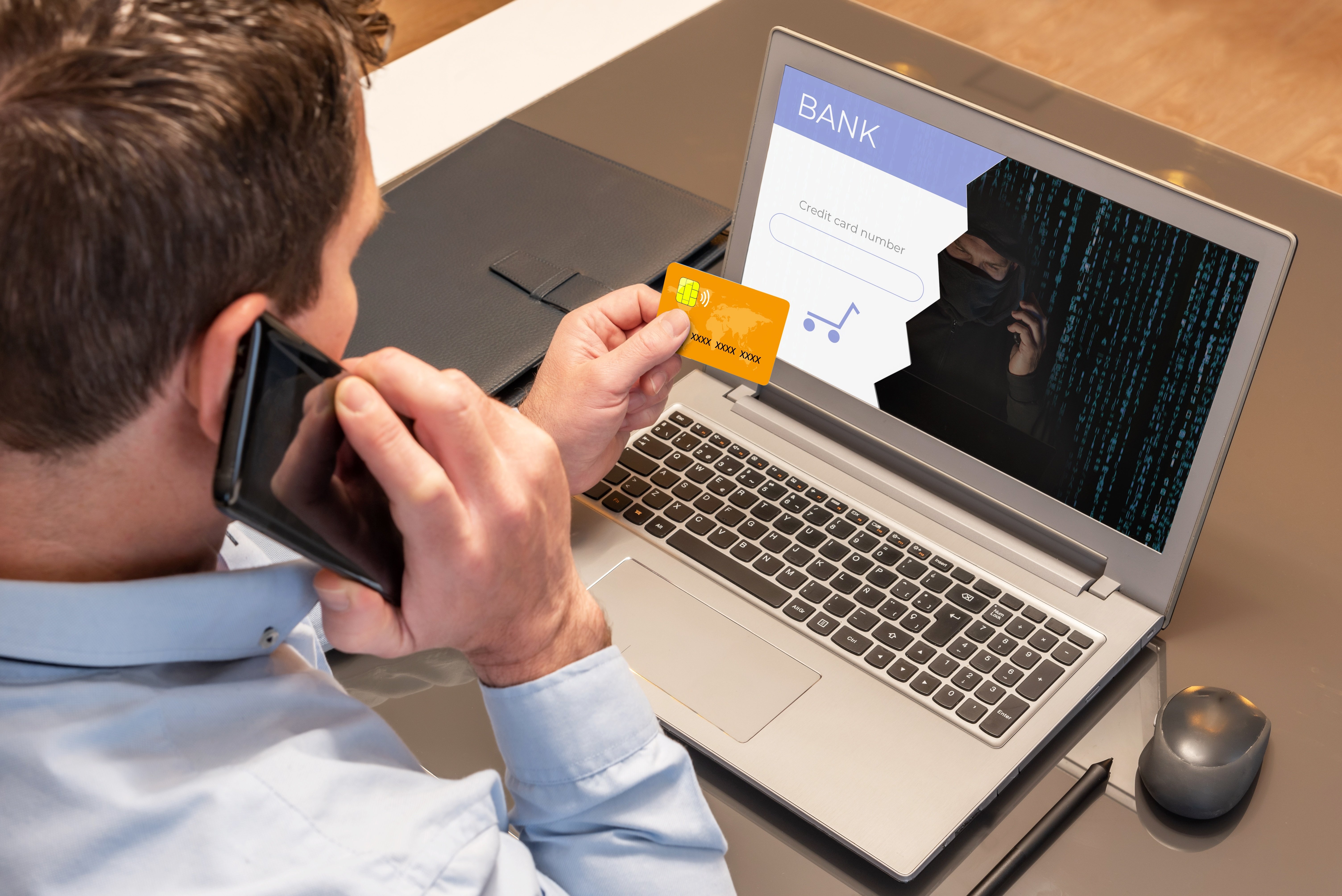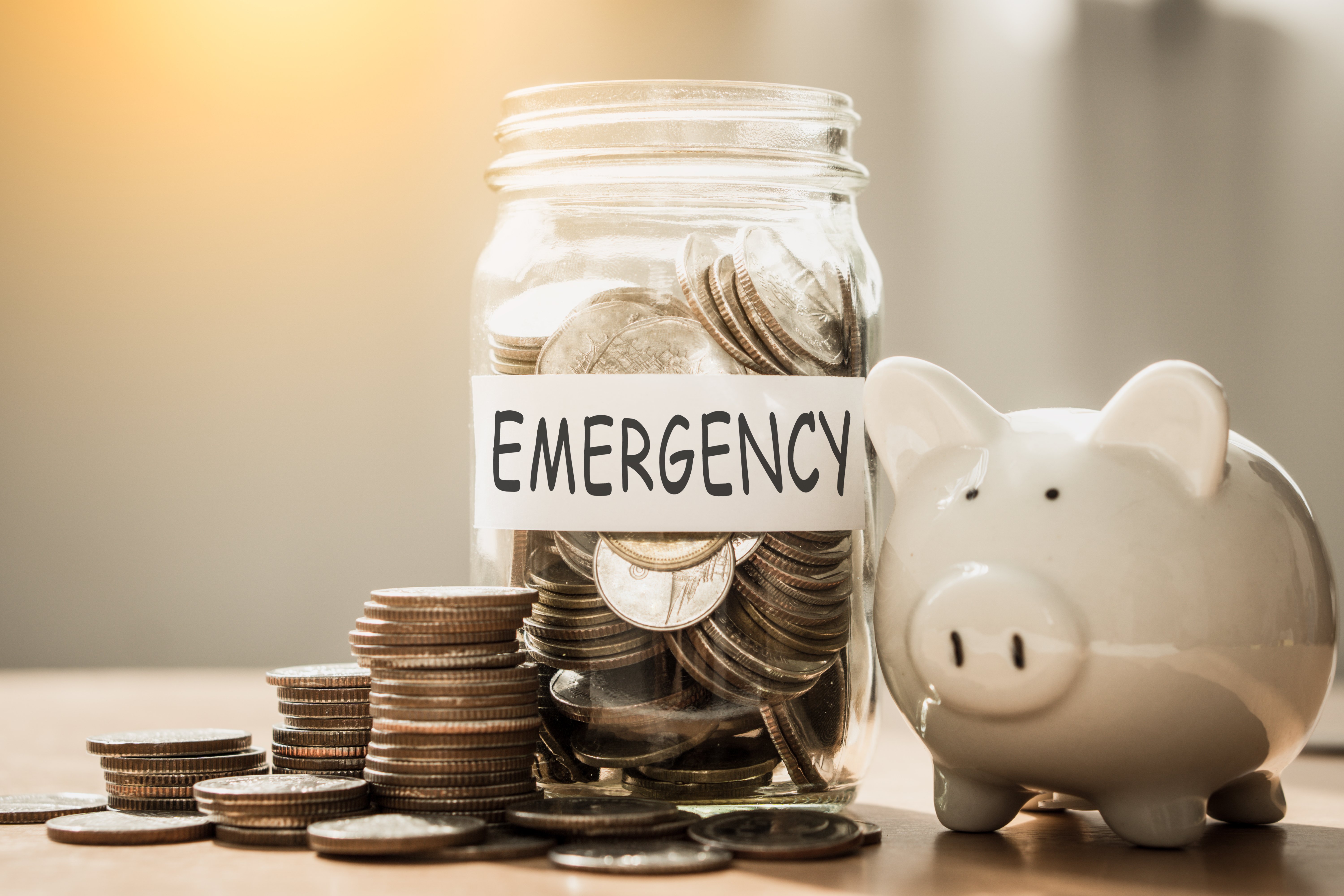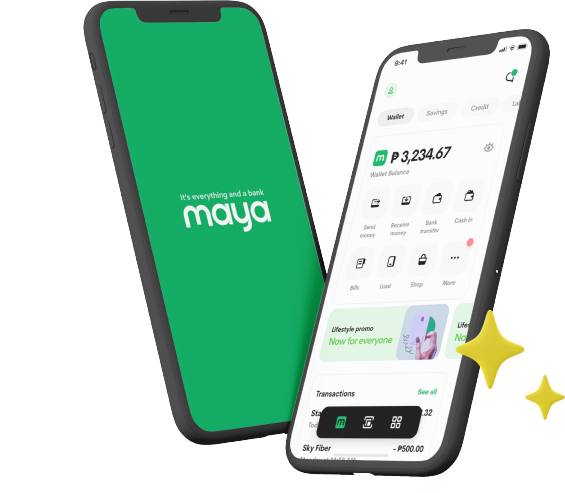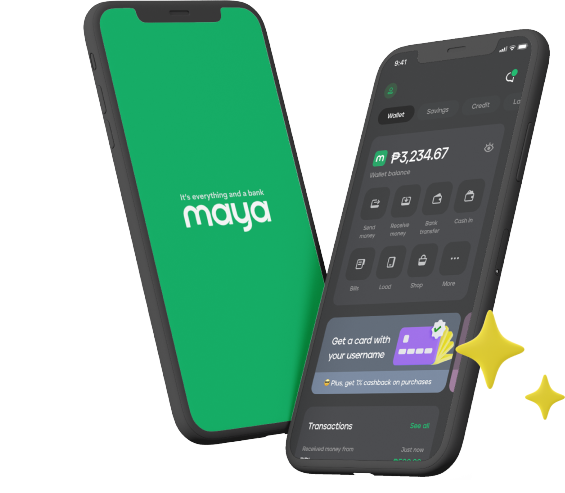
The adoption rate of credit cards in the Philippines has steadily increased over the years, with global information and insights company TransUnion even noting in a 2023 report that 15% of Filipino adults now own at least one credit card. In turn, credit card transactions have also been on the rise, with data from the Credit Card Association of the Philippines (CCAP) showing that credit card spending reached up to PHP 853 billion in the first half of 2023.
This wider use of credit cards, however, has also led to more scams that target credit card holders, with their personal information also increasingly being used in fraudulent transactions. Therefore, it is a must to find a credit card with multiple security features such as the Landers Cashback Everywhere Credit Card to give you peace of mind when transacting online.
The Landers Cashback Everywhere Credit Card by Maya, the #1 digital bank in the Philippines, lets you easily monitor your transactions in real time via the Maya app, allowing you to spot any suspicious activity right away. You can also conveniently set spending limits or block specific transactions, such as online payments or foreign transactions, right in the app. Moreover, cardholders are able to take advantage of a dynamic CVV that is valid only for 24 hours. You can make use of this temporary CVV to authorize online purchases without exposing your permanent CVV, adding a layer of security to each transaction.
Indeed, not only can your Landers Cashback Everywhere Credit Card provide you with up to 5% cashback at Landers, 2% on dining spends, and 1% on all other qualified transactions,* but you can also count on it to facilitate secure online credit card transactions, whether you’re shopping or paying your bills.
That being said, the key on how to ensure safe transactions with your credit card is taking necessary precautions when using it online. After all, even the safest credit card can be vulnerable if used carelessly. One such precaution would be to avoid using free public Wi-Fi when transacting online. Let’s go over how public Wi-Fi can put your credit card information at risk as well as discuss other helpful tips on how to keep your card details secure.
How Does Public Wi-Fi Put Your Credit Card At Risk?
While connecting to a public Wi-Fi can be convenient, especially when you’re out of mobile data, doing so can put your credit card information at risk due to several vulnerabilities inherent in the connection. For one, many public Wi-Fi networks lack passwords and encryption. This means that any data you transmit, such as your credit card information as you transact online, can be intercepted by attackers easily.
Some public Wi-Fi networks can also be used to deliver malware to your device. Such malware can then record keystrokes, capture screenshots, or even extract data. Before you know it, scammers have already gotten a copy of the credit card information you’ve entered during online transactions through the malware.
In addition, some hackers may even set up fake Wi-Fi connections imitating legitimate public networks. For instance, they might create a network named "Free Mall Wi-Fi" to lure people into thinking that this is the establishment’s official Wi-Fi network. Those caught unawares could end up having their information stolen.,
Overall, the lack of security in public Wi-Fi networks makes them highly unsuitable for online transactions and should thus be avoided. By understanding the risks these networks pose, you can better protect your credit card information from hacking and fraudulent transactions.
Tips to Keep Your Credit Card Information Safe
In addition to avoiding public Wi-Fi connections, there are more precautions you can take to keep your credit card information safe while you use it online. Here are some cybersecurity best practices to keep in mind.
1. Use a Virtual Public Network (VPN)
A VPN encrypts your internet connection, making it unreadable to hackers even if you're on an insecure Wi-Fi network. Outside of a VPN, only make online transactions with secure networks such as your home’s password-protected Wi-Fi or mobile network to keep your credit card details safe.
2. Enable Two-Factor Authentication (2FA)
Make sure to enable 2FA for your banking, e-wallet, and online shopping apps as this feature requires a second form of verification for each login attempt, such as a one-time password (OTP) sent to your phone. Through 2FA, you get an added layer of security that can help prevent unauthorized individuals from accessing your accounts even if your password gets compromised.
3. Only Shop from Secure and Trusted Websites
Always ensure that the online stores you’re shopping from are legitimate by checking past customer reviews first. Verify as well that the shop’s URL uses the “https” protocol and a security padlock icon, as these indicate that the website is safer.
4. Monitor Your Statements Regularly
Regularly review your credit card statements for unauthorized charges. This allows you to spot any fraudulent transactions right away and report them to your credit card provider. Landers Cashback Everywhere Credit Card users can conveniently report any suspicious card activity via Maya’s in-app support, available 24/7 for their peace of mind.
5. Be Wary of Phishing Scams
Do not click on links or provide any information in response to unsolicited emails or messages, even if they claim to be from your bank or any legitimate company. These are likely just phishing attempts hoping to steal your credit card information by scaring you with warnings such as blocking your card. If unsure, you can always contact your bank or the relevant company using the official channels posted on their website. Remember that Maya would never ask for your credit card information, password, OTPs, or other sensitive information.
Staying vigilant and adopting secure practices enables you to safeguard your finances while also affording you peace of mind every time you use your credit card to make a transaction. By refraining from using public Wi-Fi for online transactions and following the tips discussed above, you can protect your credit card information and enjoy a safer online shopping experience.
*Transactions that don’t qualify include: cash in, cash advance, quasi cash purchases, casinos and gambling, fuel, supermarket, pharmaceuticals, utilities, telco, and government.
You might also like
These Stories on Maya Bank




